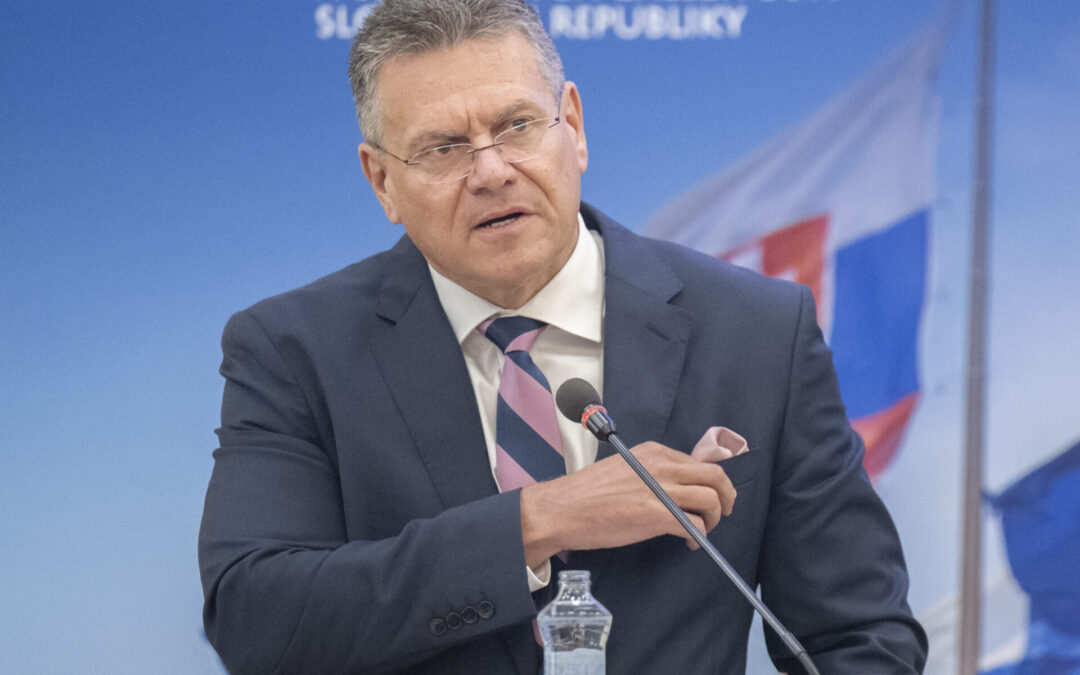BRUSSELS – The European Union over the last 20 years, since Slovakia also became part of it, has undergone changes, it is different from the time when we joined, and its further expansion is being prepared under completely different circumstances. In an interview for TASR, this was stated by Maroš Šefčovič, Vice-President of the European Commission for the European Green Deal, Interinstitutional Relations and Foresight.
The Slovak Commissioner pointed out that over the past two decades, the Union has gone through several crises that have shaped it. He noted that economists would certainly be able to compare where the Slovak economy and currency could have been if we had not become part of the Union and the eurozone. He claims that Slovakia and the countries of the Visegrád Four have become a significant economic zone over this period, and the EU’s GDP has grown thanks also to the economies of the new member countries.
“When we observe the connections between the economies of Western Europe, but especially Germany, with the economies of the Central European countries, we see that supply chains have been created that operate throughout Europe and are of global significance. This would not have happened if we were not on the single market, where borders do not divide us,” he explained.
He reminded that Slovak entrepreneurs felt the benefits of membership immediately after entering the EU. Customs bureaucracy and various certificates and documents that they previously needed to export their goods to the most lucrative market in the world, of which they are now a firm part, were no longer required. This is considered important even in a time when the competitive struggle between Europe and its rivals China and the USA is intensifying.
According to him, the celebrations of the largest expansion of the Union are a suitable moment for reflection on future expansion. He reminded that 20 years ago it was a simpler process, candidate countries were closer to the Union in terms of standard of living than current candidates, it took place in a time of peace and after thorough preparation. “We submitted our application in 1993 and we entered the Union in 2004. There were intensive negotiations. We had to transpose into national law something over 100,000 pages of European laws. Today, there are over 150,000 pages. The Union has evolved over 20 years and everything is happening in a different atmosphere. We have two war conflicts near our borders and relatively tense budgets after efforts to handle extraordinary crises,” he explained.
He added that no major economy in the world had to direct as many resources as the EU to maintain the operation of the economy, social cohesion, and to support households to cope with the sharp increase in energy prices. According to him, the process of future expansion will look a bit different, with more emphasis being placed on readiness, not only of the candidates but also of the current member countries. Also so that the same feeling as 20 years ago, when the inhabitants of the original member countries were surprised by the expansion, does not happen. Now it will involve larger states, especially in the case of Ukraine, with a much bigger difference in living standards and new challenges. “The reward for this effort should be a consolidated European continent with a larger number of inhabitants and a solidly built economic and security structure for the 21st century,” Šefčovič conveyed.
 go to the original language article
go to the original language article
